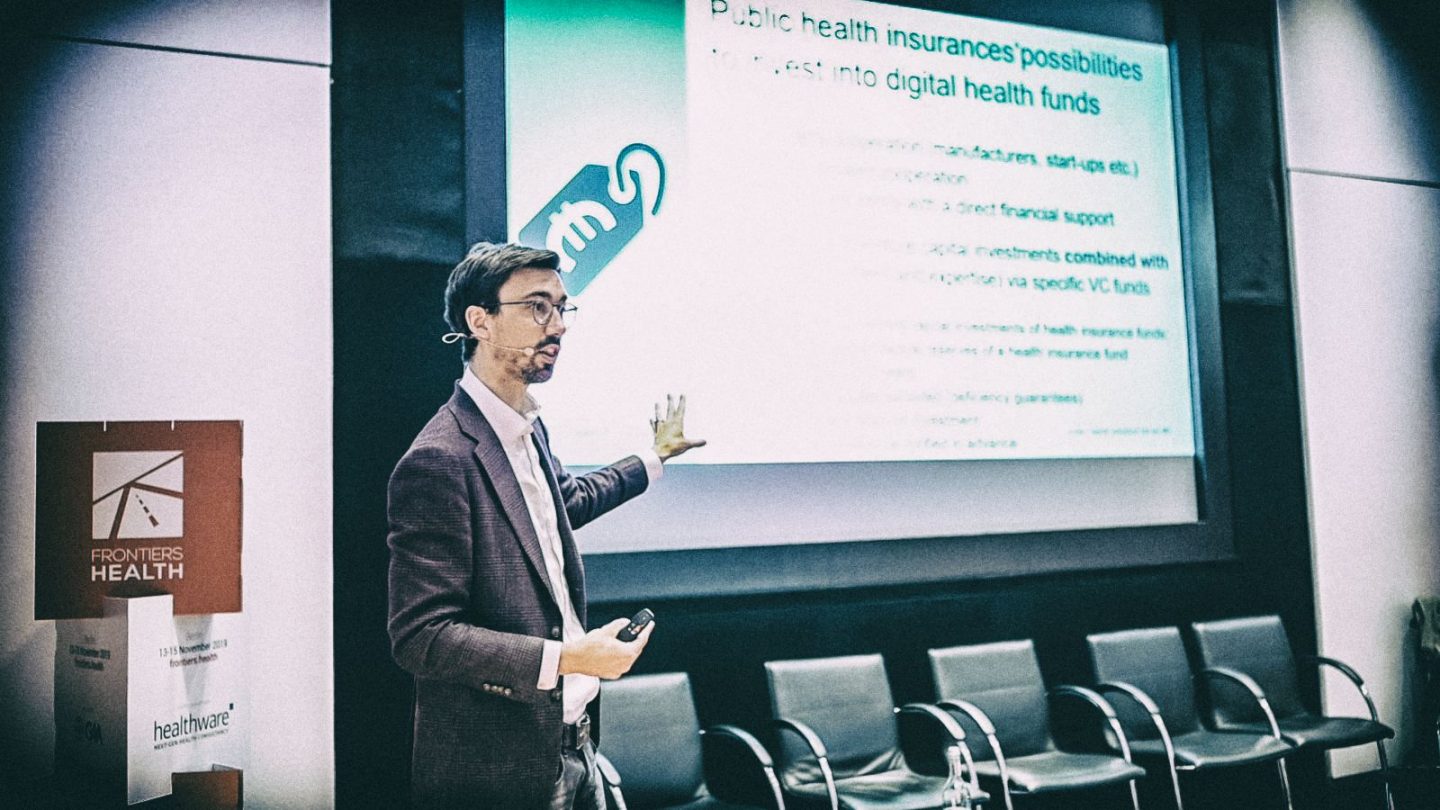Henrik Matthies, Managing Director of Health Innovation Hub (hih), is one of the few people who can explain a serious and complex German law in an absorbing way. In the interview with the Digital Health Global Blog, Henrik shares the insights on the recent progressive changes in the German legislation in healthcare and its ‘Fast Track’ for digital health startups that can now apply for statutory reimbursement.
hih is a think-tank of the Federal Ministry of Health – an initiative launched by the German government in 2019 as an answer to the country’s digitalization struggles. hih stayed a bit behind the curtain but the agency is in fact working directly on the implementation of Germany’s Digital Healthcare Act (DVG) with Henrik being one of its main drivers. Apart from the Digital Care Act, hih also works on many other projects in the field such as the electronic patient record, the digitization of hospitals and the digitization of Germany’s public health efforts during Covid19.
You can read more about Germany’s Digital Health Act and the “Fast Track” procedure and learn the opinions of the startups-participants in our recent interview.
– Henrik, let’s start with an overview of the recent International DiGA Summit – the event held by hih in September 2020 to discuss the Digital Care Act. What was the purpose of the event and what are your impressions of the Summit that counted with the presence of the Federal Minister of Health?
We have planned to host such an international event in English for a very long time as we realized that opening the German market to digitization means that we shall also attract the brightest solutions from all over the world. Such an approach is absolutely new for the German healthcare system which so far has been very closed, very German, very rigid and complex in structure. The ‘Fast Track’ is, vice versa, a transparent, structured and the quickest possible path for digital health solutions (in German in short ‘DiGA’) to enter the system.
To be honest, the ‘DiGA Fast Track’ is very selfish: we want to have the best possible healthcare in Germany. And to get the best possible healthcare, we need to have the best possible solutions which exist around the world. The Summit was held to make sure that everyone understands how the process works and that we are serious in attracting the global health audience. In the past I was a co-founder of two larger tech companies, hence my interest was also to make the Summit founder-oriented and explain what the law implicates for DiGA manufacturers.
In terms of reach, we were quite overwhelmed: more than 1500 visitors from more than 40 countries tuned in. It was a very positive surprise to us that a government agency is able to generate such a reach in order to explain a single law.
– During the Summit you had a live feed with the questions from the audience. Were there any unexpected questions?
Curiously enough, a question raised many times was about how much will be charged when consulting about the DVG and ‘Fast track’. Well, the BfArM guide – the best document to get started and understand the Fast Track process and criteria – is a simple PDF download, and it’s, of course, for free.
A big learning for us was that we have to make a better job in educating the non-German companies on how the German healthcare system works. We didn’t hold a section dedicated to the German healthcare system that was initially considered and I think this section would have addressed or even prevented many of the actually asked questions.
– Indeed, each single national healthcare system sets up a big barrier to entry.
Yes, one of the challenges for a digital health startup or company is the complete diversity of the healthcare ecosystems even inside the EU. All of them are so different that startups need a lot of adaptation. And my next goal would be to get a more aligned structure across Europe: if you once succeed in entering one market and comply with the regulations, say, in Finland, it shouldn’t be too much of a hassle to also expand to Germany, France or Belgium and vice versa. But we are not there yet.
At the DiGA Summit we had many policy makers also from other nations and we stimulated a lot of knowhow exchange. We realized we need to make sure that before other countries start to implement anything, they shall know our learnings and the pros and cons of our framework. Such experience transfer will help to move towards more harmonization within the healthcare systems across the European Union.
– In the event’s feed I saw some critical comments and questions regarding the ‘not digitally-friendly’ prescription procedure for the ‘Fast Track’ startups (right now the prescription procedure for the digital health apps is paper-based and also requires the patient to call his insurance company to get the activation code – editorial remark).
You can imagine that implementing the DVG required the interaction with a lot of regulatory framework, infrastructure and processes that are already in place. We couldn’t invent a completely new healthcare system from scratch. There are many requirements for the GPs that are already in practice and these requirements also touch health data privacy and security issues, its storage, access and handling. Within this given setup we had to come up with a smart idea on how to prescribe the digital solutions like ‘tomorrow‘ – because the 9 months that we had to set everything up equals in healthcare thinking ‘tomorrow‘. And we wanted to make sure that any physician and any of more than 100 statutory health insurance fund could use the prescription process from day one as well as 150 000 physicians and psychotherapists.
– To sum up, how many startups are currently in the process of applying to operate under the Digital Healthcare Act?
There are more than 20 companies already in the Fast Track application process and more than 70 had a consultation with BfArM – that’s usually the step before you decide whether to apply or not. A very promising indicator towards market acceptance is the broad range of solutions that we are going to have, from therapeutics to mental health and chronic diseases. For the first time ever, many physicians in Germany will deal with DiGA and realiz how they can actually benefit from it. Equally, millions of patients will finally have something additional to their usual therapy, something which goes beyond medication. The digital solutions will accompany them in their pocket and become a part of the patients’ everyday life.



